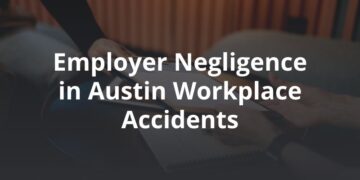If you have tragically lost a loved one in Austin due to the negligence of another, you may be able to seek some form of justice and accountability through a wrongful death claim. While it will not bring your loved one back, you can secure some degree of responsibility and ease the financial burden caused by the death of your loved one.
An experienced Austin wrongful death lawyer will discuss your legal rights and options during a complimentary consultation.
What Is Wrongful Death?
Texas law states that one person is responsible for the damages arising from an injury that eventually leads to another person’s death when they or their worker caused the death by their “wrongful act, neglect, carelessness, unskillfulness, or default.”
In other words, a fatality is considered a wrongful death when someone else was responsible for causing it.
What Is a Wrongful Death Claim?
When a loved one is killed because of another person’s carelessness or misconduct, the legal system provides certain surviving family members the ability to seek compensation from the defendant for the losses they have suffered due to their loved one’s passing, including:
- Funeral and burial costs
- Medical expenses
- Lost wages
- Loss of inheritance
- Grief
Texas Law states that only a decedent’s surviving spouse, children, or parents can bring forth a wrongful death claim. If, after three months, no one has brought this type of action, the decedent’s executor or administrator can file a wrongful death claim unless all of the eligible individuals ask them not to.
A wrongful death claim is separate and distinct from any criminal case that is filed in the matter. While criminal charges sometimes coincide, neither proceeding has any bearing on the other.
Types of Injuries that Might Lead to Wrongful Death
Any injury that occurs in a personal injury incident can potentially lead to a wrongful death claim.
Some common examples include:
- Brain injuries
- Spinal cord injuries
- Severe burns
- Internal organ damage
Next, we discuss some common scenarios that might provide grounds for a wrongful death claim.
3 Common Examples of Wrongful Death
Several different scenarios can potentially result in a wrongful death claim. Here are three common examples:
Car Accident
According to the Insurance Institute for Highway Safety, more than 38,000 people died in car accidents in 2020.
Many car accidents are due to the negligence of drivers who cause car crashes due to:
- Speeding
- Drinking and driving
- Driving while under the influence of illegal or prescription drugs
- Fatigued driving
- Texting while driving
An experienced car accident lawyer can explain whether your loved one’s death is due to carelessness.
Medical Malpractice
Medical malpractice occurs when a person is harmed because their medical provider’s care fell below the accepted standard of care.
The following types of mistakes can potentially lead to a patient’s death:
- Failure to diagnose
- Misdiagnosis of the patient
- Medication errors
- Communication errors
- Surgical errors
- Negligent post-operative care
If you believe your loved one’s death was due to medical malpractice, reach out to an experienced lawyer for help.
Intentional Killing
In some situations, a person may have intended to kill or seriously harm your loved one. For example, the death may be a result of assault or homicide. In addition to whatever criminal consequences the defendant may face, you can also seek compensation for the loss of a loved one through a civil wrongful death claim.
Contact an Experienced Austin Wrongful Death Lawyer If You’ve Lost a Loved One Due to Someone Else’s Actions
The examples above are only a few possible situations that can ultimately result in a wrongful death claim. The best way to determine if you have grounds for a wrongful death claim is to consult an experienced injury lawyer.
If you’ve been injured in an accident in Austin and need legal help, contact our Austin wrongful death lawyers at FVF Law to schedule a free consultation with our team.
FVF Law
3101 Bee Caves Rd #301, Austin, TX 78746, United States
(512) 982-9328







